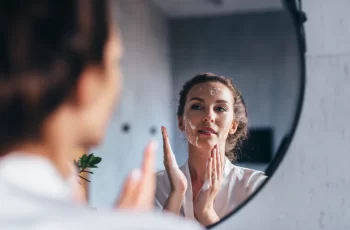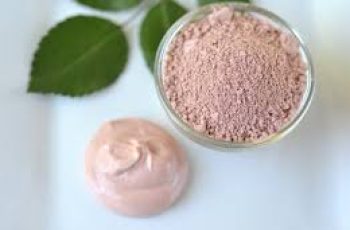
How Antioxidants Can Help Improve Skin Health
The search for the best product, or magic elixir for everlasting youth seems to be the continuous quest for many of us. Well, it’s been years and although there hasn’t been a wonderful discovery of any sought after fountain, but there are antioxidants. The word may ring a bell and you no doubt know they play an important role in maintaining a firm, clear, youthful complexion. But are they only another fad or trending ingredient that will slip away into the shadows, or are antioxidants the key to making all your flawless skin dreams come true?
What are antioxidants?
Antioxidants are substances that help protect the skin’s surface from free radicals and environmental aggressors like UV and pollution. Antioxidants are able to limit the production of free radicals which lead to the skin becoming damaged on a daily basis.
Free radicals, believe it or not, play an important role in the body and can be either harmful and beneficial. When the free radicals are stable they have the ability to combat viruses and bacteria. If the amount of these molecules increase too quickly then an imbalance to the skin occurs, also known as oxidative stress. Antioxidants are able to combat the first signs of ageing, such as fine lines and wrinkles, but also reduce the appearance of dark spots and pigmentation and calm the skin from any inflammations.
There have been many studies to show that the introduction of an antioxidant to your daily routine will help fight any free radicals and counteract any of their harmful effects. Luckily there are many varieties of antioxidants you can add to your diet and in your skincare routine. Several of them have the ability to lock in hydration into the skin and increase water retention leaving the skin moisturised and radiant.
What do antioxidants do for the skin?
Here are the 5 main benefits of antioxidants for the skin;
Antioxidants help the skin repair itself
Antioxidants help to brighten the skin tone
Antioxidants reduce and correct any signs of premature ageing
Antioxidants calm and reduce any inflammation of the skin
Antioxidants can restore balance to the skin and protect it from daily damage
As previously mentioned there are a variety of antioxidants available and we are going to share with you the ones that are the most popular amongst the experts and dermatologists.
Vitamin C
This antioxidant is the most studied available on the market today and has a huge following of devoted skin fans. Its free-radical fighting and also has the ability to boost the collagen production in the skin allowing it to give the face a youthful bounce. It can give the skin an all-over glow and fade the appearance of dark spots and pigmentation.
The downside to this skin saviour is its tendency of being a little unstable when it comes into contact with light and air. Its potency, when exposed to these factors, begins to drop and you will find your product becomes discoloured and no longer delivers the same results. Be sure that when buying anything containing vitamin C, which is also called ascorbic acid, it comes in an opaque bottle and store it in away from direct sunlight. We have a dedicated blog post with more information on the skin benefits of vitamin C.
Retinol (Vitamin A)
Retinol should really be named a time machine in a bottle, because of its failsafe ability to turn back the clocks and reverse any signs of ageing to the skin. Due to the structure of this antioxidant smaller molecules that are able to work their way further down into the lower layers of the skin. It is able to accelerate the skin cell renewal, stimulate collagen production and smooth out any appearance of lines and wrinkles, it is one of the most powerful of the antioxidants.
Read more about the benefits of retinol here.
Niacinamide (Vitamin B3)
This antioxidant helps to improve the skin’s texture and tone with its anti-inflammatory properties and ability to reduce the visibility of fine lines, wrinkles and any hyperpigmentation of the skin. Niacinamide works mainly on the outer layer of the skin, called the epidermis, and ensures that the skin’s natural barrier is fully functioning and healthy making it bullet prove to any free radicals, toxins and daily aggressors seeking to cause damage to the skin.
Polyphenols
This plant-based vitamin can be found in lots of your favourite food and drink such as red wine, chocolate, fruits and green tea. This particular antioxidant possesses UV combating and anti-inflammatory properties when applied topically can improve the skin’s natural defence against oxidative stress caused by too much exposure to free radicals.
Vitamin E
Vitamin E helps the vital organs of the body to function correctly, and seeing as our skin is our largest organ you can only imagine how much it loves this antioxidant! Vitamin E is a powerhouse ingredient and is praised constantly for its capability to speed up the healing process of the skin. Concerns such as stretch marks and extremely dry skin will see remarkable results when using a vitamin E enriched moisturiser or serum.
How do I use antioxidants?
Antioxidants are found in every product available and can be introduced into your everyday skincare routine in whichever way works for you.
Cleansers
Face wash
Toners
Serums
Moisturisers
Face masks
Body lotions
The list is frankly endless and it really is down to you and what works best in your routine. However, some advice from the beauty experts would be to opt for serums or face masks. Both of these products give the antioxidants longer time to work their way down into the skin and absorb fully. Products such as face wash and cleansers are great to use, but always need to be rinsed off and so the amount of time for the antioxidant to absorb is limited.
Do antioxidants in skincare really work?
In a word, yes! It may indeed sound all too good to be true, but the truth of the matter is antioxidants are pillars to the beauty industry. You will find that at least one of the vast amounts of antioxidants available in the formulation of your favourite skincare product. These powerhouse ingredients target almost every skin concern and any skin type are able to use them and see the results.
What is the best antioxidant for my skin?
Luckily as we have already discussed you are spoilt for choice when it comes to finding an antioxidant. It is advisable to seek the help of your doctor or dermatologist if you have any queries about which one to add to your skincare regime. Here are some to help with your decision, it is also advisable to perform a patch test before using any product to ensure there will be no skin irritation or reactions.
Oily skin types
Vitamin C
Retinol (Vitamin A)
Vitamin E
Combination skin types
Vitamin C
Retinol (Vitamin A)
Vitamin E
Polyphenols
Niacinamide
Dry skin types
Vitamin E
Polyphenols
Niacinamide
Natural antioxidants such as avocado oil and green tea
For dry and sensitive skin types finding an antioxidant is no easy task, however, there are some natural antioxidants that you can find in foods such as honey and avocado.
What are natural antioxidants?
There are some natural antioxidants that will benefit your skin;
Ginger Root
This essential oil is able to defend the skin’s surface from any environmental aggressors and free radicals that can cause a considerable amount of damage. Ginger root is a great addition to your morning routine and can smooth the skin’s texture or signs of ageing, correct any dullness and leave the skin looking and feeling revitalised.
Avocado Oil
Avocados are packed with a rich source of antioxidants and have been used in skincare products and treatment for years. The oil is a fatty-acid emollient and can lock in hydration instantly giving the skin a moisture boost, great for any dry skin types who are left super soft and comfortable skin.
Manuka Honey
Manuka honey provides an enormous amount of antioxidant properties compared to other types of honey available. Manuka honey brings pure, glowing vibrancy back to the skin leaving it visibly renewed and smoother whilst helping to build the skin’s barrier.
Green Tea
Green tea is filled with polyphenols that can combat free radicals in their sleep. It is also the most soothing out of the antioxidants available and helps to accelerate any healing and calming inflammations to the skin.
This is the antioxidant for you if you suffer from rosacea, psoriasis and sensitive skin. But before you dunk your head in your morning brew, the antioxidant levels in a tea bag are too low to see any results so invest in a serum or moisturiser.
So, there you have a mini-guide on how antioxidants can help improve your skin health. There is no faulting these substances and have really stood the test of time, especially in a world where there is always something new to try. By establishing a good selection of high quality and well-performing products in your skincare routine, you will find that your skin will remain at its healthiest state no matter what the world may throw at it!


